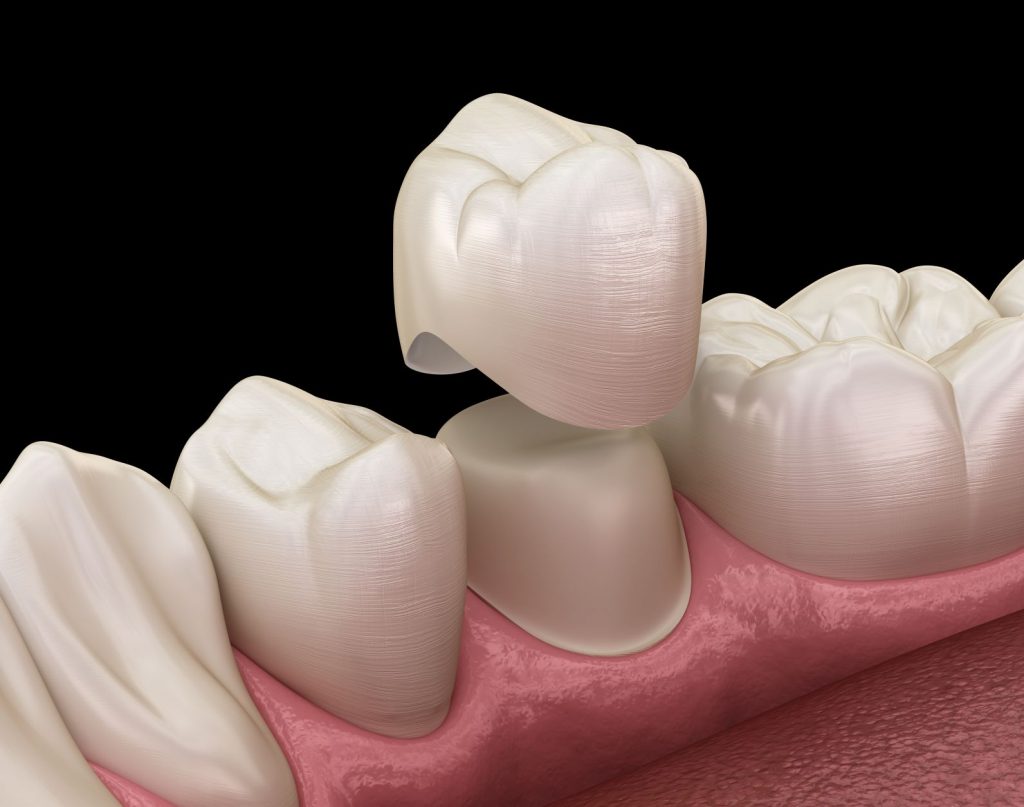Although permanent teeth are meant to last a lifetime, it’s easy to let them go. Not brushing is one way to surrender your teeth to tooth decay; skipping regular dental visits is another. Truth is there are several things that can make the health of your teeth go awry — which is why a dental crown is such a common dental treatment. Given how many people have dental crowns of their own, it’s easy to see why you’d want to find out more about teeth crowns.
Tooth crowns are one of the most effective dental solutions for restoring a tooth’s shape, size and strength, or to improve its appearance. Your dentist might recommend teeth crowns to:
- Cover discolored teeth or dental implants
- Protect a tooth from tooth decay
- Restore a broken tooth
- Hold a dental bridge in place
The Dental Crowns Procedure
Preparing teeth for teeth crowns usually involves two visits. Tooth crowns can be prepared and placed in a single visit if your dentist uses a dental tool such as CEREC®. During the first visit, your dentist will take an X-ray to examine the extent of decay.
If a root canal isn’t necessary, your dentist will:
- File the chewing surface, sides of the tooth and surrounding teeth.
- Take an impression of the prepared tooth and surrounding teeth.
- Place a temporary crown to cover the prepared tooth while the permanent dental crown is being made.
At your second visit, your dentist will remove the temporary. Your dentist will check the fit and color of the permanent crown, then cement it in place.
Dental crowns are made from a variety of dental materials, including:
- Metal (gold, nickel or chromium)
- Porcelain fused to metal
- All porcelain or all ceramic
- Resin (durable plastic)
Computer imaging for crowns allows you to get a sneak peek at how tooth crowns will look before undergoing treatment. This helps you compare your options so you can choose whether a porcelain crown or one made of metal might be more appropriate.
Caring for Your Teeth Crowns
Keep in mind that a metal crown requires less tooth structure to be removed, but is less attractive than a porcelain crown. Alternatively, a porcelain crown, though less noticeable, may not last as long as metal or resin crowns. If the cost of teeth crowns is a consideration, talk to your dentist about which is more expensive — a porcelain crown or its metal or resin counterparts.
A new dental crown may make your teeth sensitive to heat and cold. A porcelain crown can chip easily and some tooth crowns become loose or fall off. If you experience any problems with your dental crown, call your dentist.
Dental crowns don’t keep tooth decay at bay. You still need to brush, floss and have regular dental cleanings. Avoid certain habits such as opening packages with your mouth, grinding your teeth and chewing ice to help prevent tooth crowns from wearing out prematurely. Well-cared for dental crowns can last 5 to 15 years.
Reading about dental crowns is a good start; following up with a conversation about tooth crowns with your dentist is even better.

